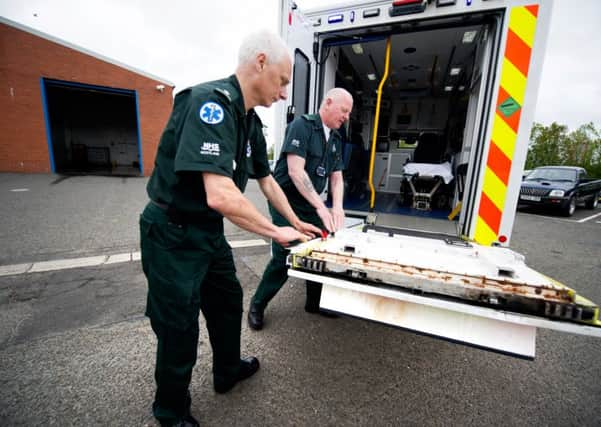NHS must listen to whistleblowers – leader comment


At first glance, the news that the number of NHS staff contacting a whistleblower hotline has doubled sounds alarming.
And, indeed, it may well be a disturbing sign of yet more trouble within the health service, as opposition politicians at Holyrood were keen to point out.
Advertisement
Hide AdAdvertisement
Hide AdFigures published quietly on the Scottish Government’s website on Thursday afternoon revealed that there were 49 calls from NHS staff to the Whistleblowing Alert and Advice Line between August and January, compared to 20 in the previous six months. The latest figure was also the second highest since the hotline was set up in April 2013.
Thirty-four of the callers raised “public interest concerns” – which could include risks to patient safety, financial wrongdoing or poor working practices – with 20 out of the 34 saying they had already told senior staff of their concerns. Some reported feeling ignored or even victimised.
Now, it is possible that more calls are being made because there are more problems.
However, it could also be that staff are more willing to come forward to highlight issues that have previously been brushed under the carpet.
It is only by facing up to the reality of the NHS that politicians will be able to sort it out and people working on the frontline can often see problems that those at the top of the chain of command cannot. Connecting these two groups is clearly worthwhile.
The hotline is still relatively new so some NHS staff may not have really thought about using it or might perhaps be cynical about the response. Why complain if you think the problem will not be fixed?
The key question is what is done with the information from the whistleblowers. In order for the system to work, officials will need to assess whether the complaints are justified or not – as any manager will know, it’s possible senior NHS staff have been ignoring them for perfectly good reasons.
However, if the complaints are justified, action must then be taken. Of course, if staff see that calls to the hotline produce results, they are more likely to engage in the process.
Advertisement
Hide AdAdvertisement
Hide AdIt’s hard to say whether that is what is happening or whether the problems are multiplying. But, overall, the idea of providing frontline staff with an outlet for their concerns and opinions is an excellent one that should ultimately help the NHS and its hard-pressed staff.